Mortal Kombat II, released in 1993 by Midway, is a fighting game ported to various platforms like MS-DOS, Amiga, Game Boy, Sega Genesis, and Super Nintendo. Developed mainly by Probe Software and Sculptured Software, and published by Acclaim Entertainment, it was a licensed conversion of the arcade version. The game expands upon the original with new characters, fatalities, stages, and gameplay mechanics, further solidifying the franchise's popularity and notoriety.
1992: Predecessor Mortal Kombat Released
In 1992, the original Mortal Kombat was released, preceding Mortal Kombat II. The sequel improved gameplay and expanded the mythos.
1993: Original Arcade Release
In 1993, Mortal Kombat II was originally produced by Midway for arcades. The game was later ported to multiple home systems.
1993: Increased Sales
In 1993, WMS Industries reported that sales rose to $101 million from $86 million, as the revenue gain was related to the sale of the arcade version of MKII.
1993: Marketing and Comic Book Release
In 1993, alongside the arcade game's release, the Mortal Kombat II Collector's Edition comic book by Tobias was released. Acclaim Entertainment initiated a $10 million global marketing campaign for home versions. A live-action TV commercial featuring characters from the game was created by David Anderson and Bob Keen. The promotional campaign's tagline was "Nothing ... Nothing can prepare you."
January 1994: Final Version Released
In January 1994, the final version of Mortal Kombat II, revision 3.1, was released after three previous revisions to finalize moves, correct bugs, and add content.
September 9, 1994: "Mortal Friday" Release
On September 9, 1994, dubbed "Mortal Friday", the Game Boy, Game Gear, SNES, and Genesis versions of Mortal Kombat II were released simultaneously by Acclaim's marketing.
September 1994: Sales Achievements
In September 1994, Mortal Kombat II was the top-selling Genesis, SNES, and Game Gear game in the United States, and the top-selling game in the United Kingdom, including for the Mega Drive, SNES, Master System, Game Gear, and Game Boy.

November 1994: Game Gear Sales Lead
In November 1994, Mortal Kombat II remained the top-selling game for the Game Gear in the United Kingdom.
1994: Print Advertisement
In 1994, Daniel Pesina appeared in costume as Johnny Cage in a print advertisement for the fighting game BloodStorm.
1994: Highest-Grossing Arcade Game
In 1994, Mortal Kombat II became America's highest-grossing arcade game, according to the Amusement & Music Operators Association (AMOA).
1994: Annual Awards
In 1994, Mortal Kombat II received numerous annual awards from gaming publications, including "Best Genesis Fighting Game", "Best SNES Fighting Game" and "Best Overall SNES Game" from Game Players, and "Bloodiest Game of 1994" from EGM.
1994: Acclaim's Investment
In 1994, the San Francisco Chronicle reported that Acclaim spent $50 million on developing, manufacturing, and marketing Mortal Kombat II.
1995: 1995 film Mortal Kombat featured elements of Mortal Kombat II
Although the 1995 film Mortal Kombat was primarily based on the first game, it features elements of MKII, such as the characters Kitana and Shao Kahn, and the setting of Outworld.
1995: Mortal Kombat 3 Released
In 1995, Mortal Kombat 3, the sequel to Mortal Kombat II, was released.
1995: Nintendo Power Awards
In 1995, Nintendo Power readers voted Mortal Kombat II to receive the Nintendo Power Awards for "Best Tournament Fighter (all Nintendo platforms)" and "Best Play Control (Game Boy)".
1995: MKII ranked as best sequel on SNES by Super Play
In 1995, SNES magazine Super Play ranked Mortal Kombat II as the best sequel on the platform.
1995: Action Figures Released in Argentina
In 1995, a series of Mortal Kombat II action figures was released in Argentina.
1996: Arcade Sales
By 1996, the number of arcade machines sold approached 25,000 units.
1996: GamesMaster rated Mortal Kombat II 35th on their "Top 100 Games of All Time"
In 1996, GamesMaster rated Mortal Kombat II 35th on their "Top 100 Games of All Time".
1997: Ranked Among Best Games on Nintendo Platform by Nintendo Power
In 1997, Mortal Kombat II was ranked as the 53rd best game on any Nintendo platform by the staff of Nintendo Power.
1997: Second Lawsuit Filed
In 1997, Mortal Kombat actors unsuccessfully filed lawsuits against Midway, Williams, Nintendo of America, Sega of America, and Acclaim Entertainment for the unauthorized misuse of their likenesses and to seek royalties.
1999: Action Figures Released in the US
In 1999, a series of Mortal Kombat II action figures was released in the United States.
2001: Ranked Among Top Games by Game Informer
In 2001, Mortal Kombat II was ranked as the 97th top game of all time by the staff of Game Informer.
2002: Home Video Sales
By 2002, estimated gross sales of Mortal Kombat II home video games exceeded $400 million.
2003: GameSpot's Video Game Hall of Fame
In 2003, the staff of GameSpot included Mortal Kombat II in their video game hall of fame series, citing its exceptional quality as a sequel.
2005: Mortal Kombat: Shaolin Monks based on the plot and characters of Mortal Kombat II
The plot and characters of Mortal Kombat II served as the basis for the 2005 spin-off game Mortal Kombat: Shaolin Monks, which follows Liu Kang and Kung Lao as they fight their way through Outworld to defeat Shao Kahn.
2007: GamesRadar included elements of Mortal Kombat II among the ten greatest things about Mortal Kombat
In 2007, GamesRadar included four elements of Mortal Kombat II - Dan Forden's "Toasty!" effect during an uppercut, Friendship and Babality finishing moves, and the ceiling spikes Stage Fatality - among the ten greatest things about Mortal Kombat. Also in 2007, IGN's Jeff Haynes stated that "Mortal Kombat II still manages to stand up almost 15 years later as one of the best arcade fighters around."
2007: Ranked Among Important Games by GamePro
In 2007, Mortal Kombat II was ranked as the 38th most important video game of all time by the staff of GamePro.
2008: Eurogamer called Mortal Kombat II a marketing triumph
In 2008, Eurogamer called Mortal Kombat II a marketing triumph.
2008: Ranked Among Best Fighting Games by GamePro and Cinema Blend
In 2008, Mortal Kombat II was ranked as the third best fighting game by the staff of GamePro and the ninth best fighting game of all time by Rich Knight of Cinema Blend.
2009: Many fans still considered Mortal Kombat II to be the best title in the series
As late as 2009, many fans still considered Mortal Kombat II to be the best title in the series.
2009: Featured Among Best Games by Benchmark and PC World
In 2009, Mortal Kombat II was featured among the 100 best games of the 20th century by Jakub Kralka of Benchmark and ranked as the tenth best 16-bit game ever by McKinley Noble of PC World.
2009: Mortal Kombat II ranked as fifth top arcade game by GameTrailers
In 2009, Mortal Kombat II was ranked as the fifth top arcade game by the staff of GameTrailers.
February 2010: PSN Top Ten Sales
In February 2010, the PSN version of Mortal Kombat II continued to occupy the service's top ten monthly sales chart nearly three years after its re-release.
2010: Ranked Among Best Games by The Boston Phoenix
In 2010, Mortal Kombat II was ranked as the 32nd best video game of all time by The Boston Phoenix.
2010: Ranked Among Best Fighting Games by UGO and GamePlayBook
In 2010, Mortal Kombat II was ranked as the third top fighting game of all time by Marissa Meli of UGO and the second best 2D fighting game ever made by Robert Workman of GamePlayBook.
2011: Mortal Kombat II remains a firm fan favourite
According to a 2011 article by Mike Harradence of PlayStation Universe, Mortal Kombat II remains "a firm fan favourite among MK aficionados". Also in 2011, IGN's Richard George called Mortal Kombat II "still one of the most fun 16-bit fighters to play".
2011: Influence on Mortal Kombat Soft Reboot
In 2011, Mortal Kombat II had the greatest influence on the soft reboot game Mortal Kombat.
2011: Mortal Kombat II ranked as the 31st top arcade game of all time by GameSpy
In 2011, Mortal Kombat II was ranked as the 31st top arcade game of all time by the staff of GameSpy.
2011: Ranked Among Best Fighting Games by Complex
In 2011, Mortal Kombat II was ranked as the third best fighting game of all time by Peter Rubin of Complex.
2011: Mortal Kombat retold events of Mortal Kombat II
In 2011, the fighting game Mortal Kombat retold the events of Mortal Kombat II, along with the first Mortal Kombat and Mortal Kombat 3, as an effective reboot of the series. Classic costumes from MKII were also brought back as alternate outfits for female ninja characters.

2011: Skarlet officially introduced in Mortal Kombat
In 2011, the rumored red female ninja character "Scarlet" was officially introduced as Skarlet in that year's Mortal Kombat.
2012: Dan Forden's "Toasty!" effect ranked as the 11th funniest moment in video games by Complex
In 2012, Dan Forden's "Toasty!" effect during an uppercut was ranked as the 11th funniest moment in video games by Rich Knight of Complex.
2012: Boon recalls creating MKII
In 2012, Ed Boon placed creating Mortal Kombat II among his best Mortal Kombat memories, recalling the mania and hysteria surrounding the home versions of Mortal Kombat I while developing the sequel. He highlighted the addition of new equipment and increased content, such as expanding from seven to twelve characters and adding two Fatalities per character.
2013: Mortal Kombat II ranked as the sixth best arcade game of the 1990s by Complex
In 2013, Mortal Kombat II was ranked as the sixth best arcade game of the 1990s by Complex.
2013: Complex wrote that Mortal Kombat II took everything loved about the original and magnified it by about a million
In 2013, Rich Knight and Hanuman Welch of Complex wrote that "Mortal Kombat II took everything we loved about the original and magnified it by about a million. Complex also ranked it as the sixth best 2D fighting game of all time that same year.
2014: Mortal Kombat II remembered for its anarchic spirit
In 2014, Kevin Wong of Complex wrote that Mortal Kombat II is remembered "for its anarchic spirit—the game was endlessly intriguing and weird, and it had an uneasy atmosphere."
2017: Ranked Among Best Sega Genesis Games
In 2017, Gamesradar listed Mortal Kombat II 29th on its "Best Sega Genesis/Mega Drive games of all time".
December 26, 2022: Mortal Kombat II source code uploaded to GitHub
On December 26, 2022, the source code for Mortal Kombat II, including cut content, was uploaded online to GitHub.
January 6, 2023: Warner Bros. Discovery issued DMCA takedown for Mortal Kombat II source code on GitHub
On January 6, 2023, Warner Bros. Discovery sent a DMCA take down notice to GitHub, and public access to the Mortal Kombat II repository was disabled as a result.
Mentioned in this timeline
PlayStation is a video game brand by Sony Interactive Entertainment...
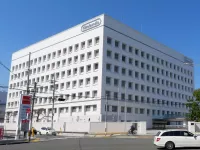
Nintendo is a Japanese multinational video game company based in...
The United States of America is a federal republic located...

San Francisco is a major commercial financial and cultural hub...
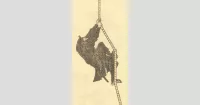
Ninjas or shinobi were covert agents in pre-modern Japan They...
Argentina officially the Argentine Republic is located in the southern...
Trending

3 days ago Michelle Obama: America 'not ready' for a woman president, cites sexism concerns.
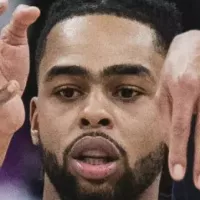
8 months ago D'Angelo Russell removed from injury report before Nets face Pacers rematch.
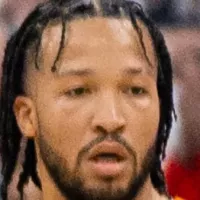
6 months ago Jalen Brunson's Rise, Pacers' Challenge, and Knicks' Playoff Collapse Reevaluation

5 months ago Knicks Consider Jason Kidd, Interview Jenkins; Discuss Potential Kidd Trade with Mavericks.
Jesper Wallstedt is a Swedish professional ice hockey goaltender currently playing for the Minnesota Wild in the NHL He was...
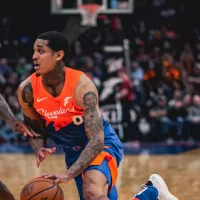
8 days ago Jordan Clarkson's Viral Meltdown: Knicks Teammates Laugh as Hart Responds to Stat Sheet Rip
Popular

XXXTentacion born Jahseh Dwayne Ricardo Onfroy was a controversial yet...

William Franklin Graham III commonly known as Franklin Graham is...

Cristiano Ronaldo often nicknamed CR is a Portuguese professional footballer...

Candace Owens is an American conservative political commentator and author...

Bill Clinton the nd U S President - served as...
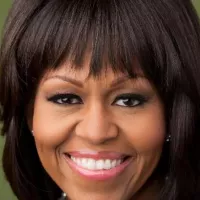
Michelle Obama is an American attorney author and former First...
